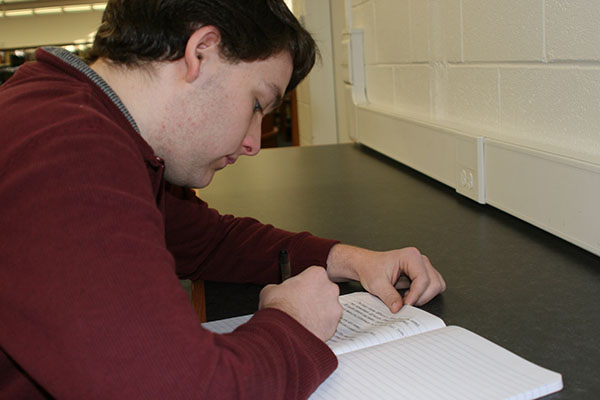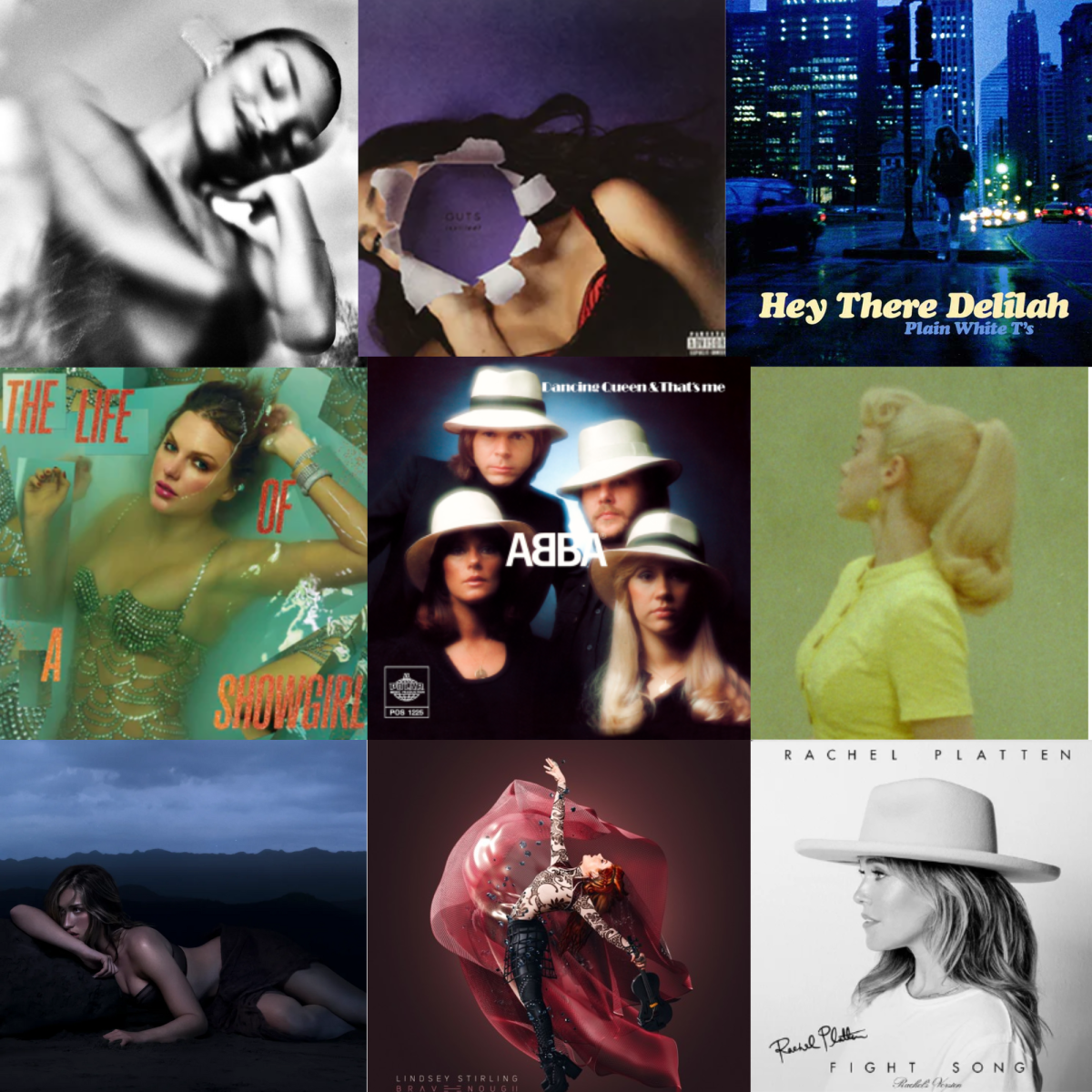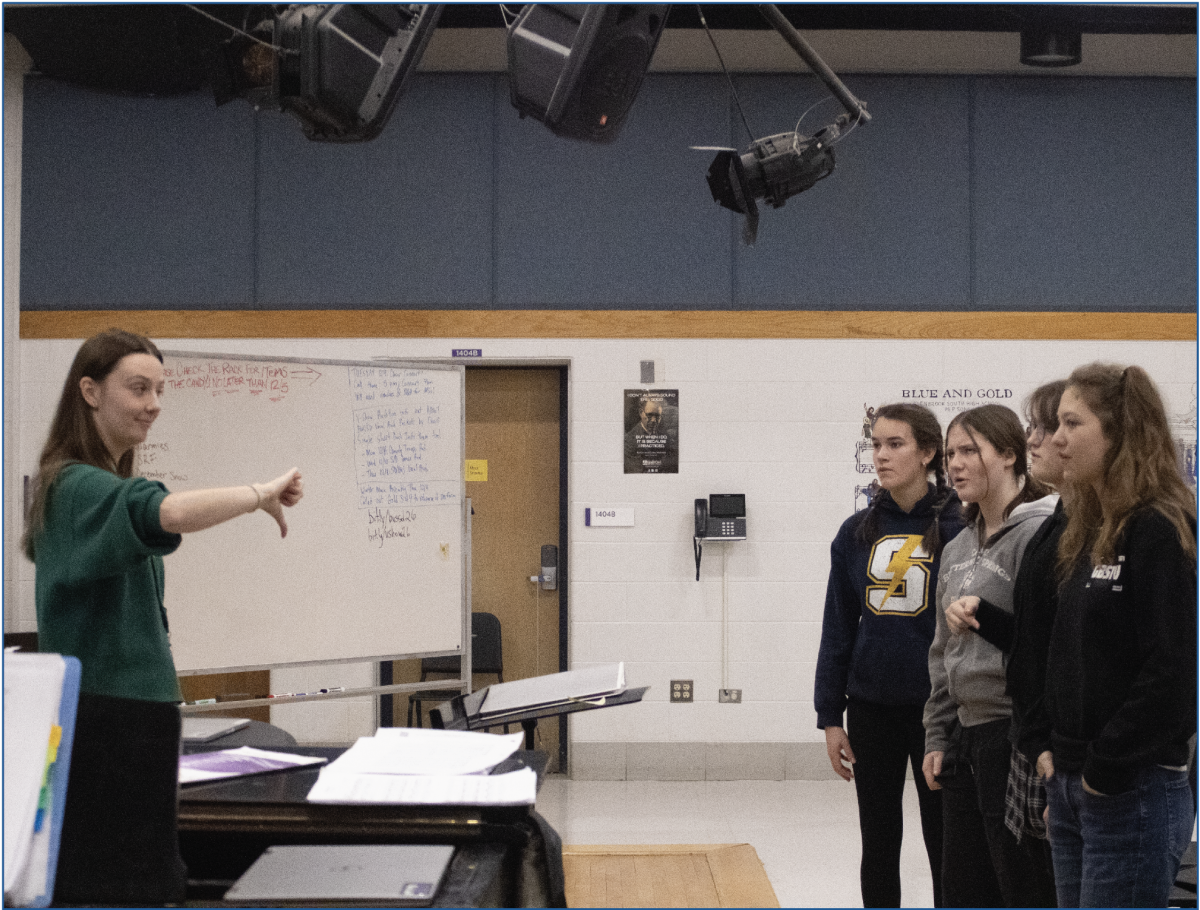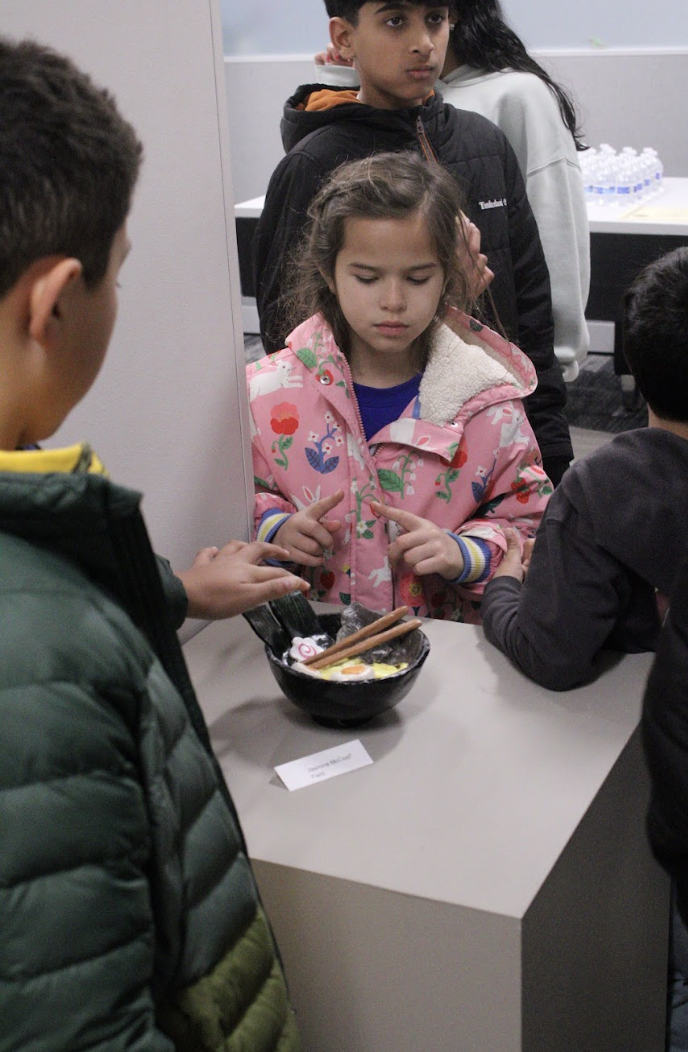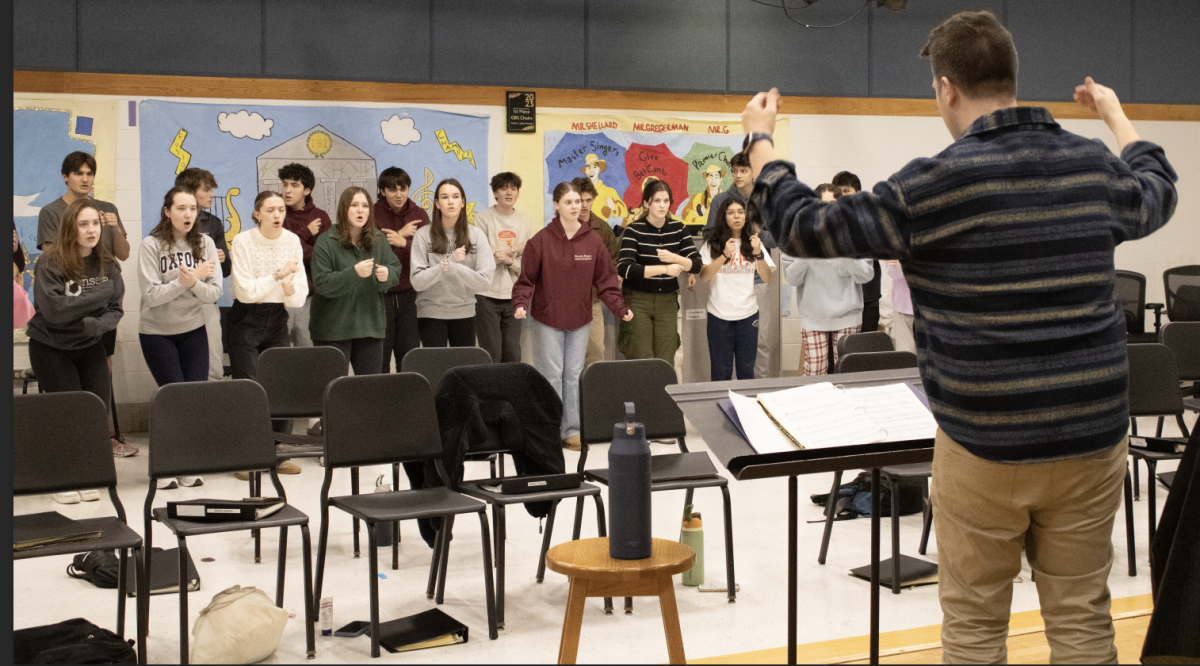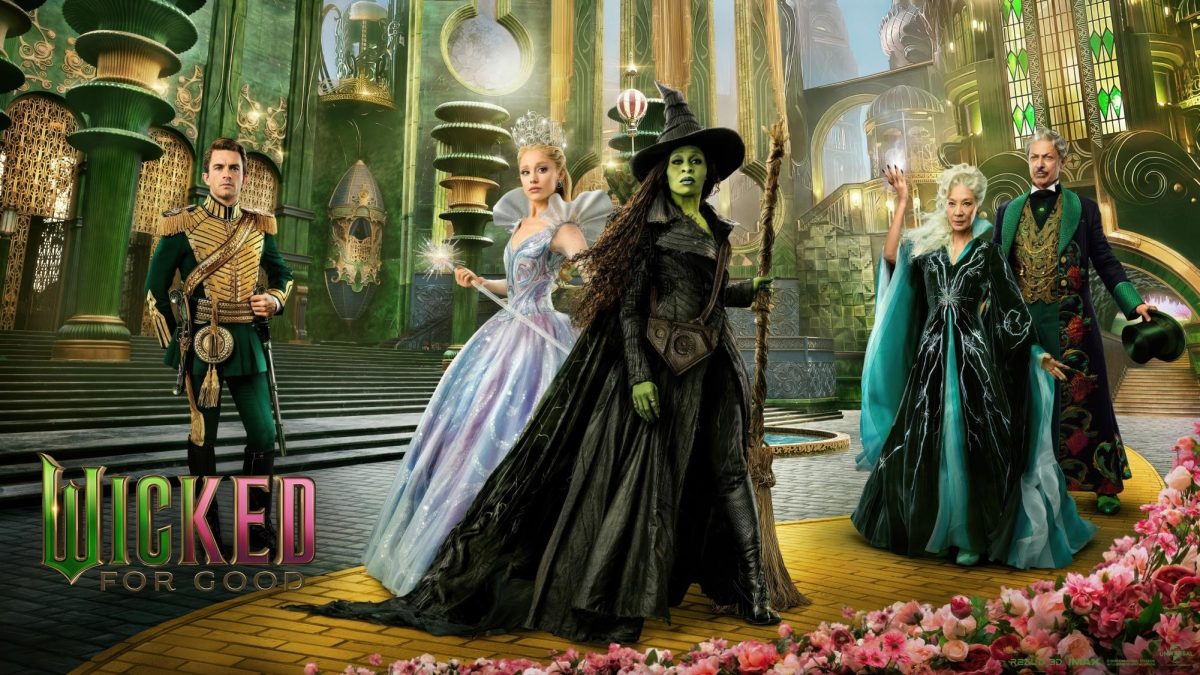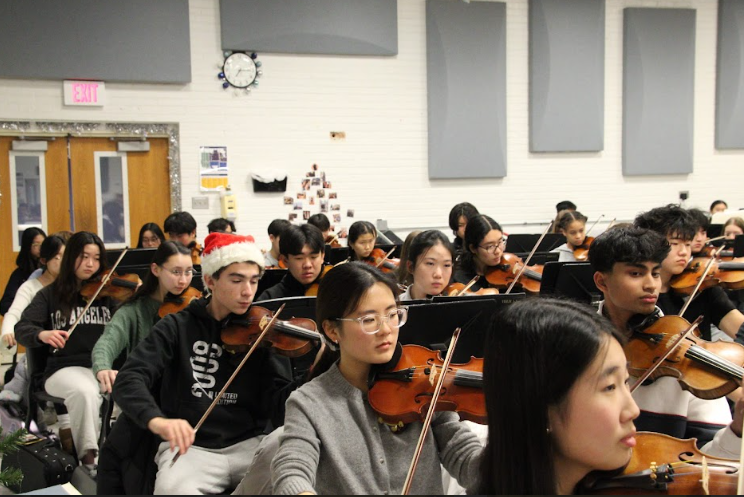Students at South are constantly writing. Whether it be for a last minute essay at midnight, copying notes during a presentation or scratching a reminder on their hand, words are always being scribbled down. Although most writing by students may consist of essays and papers, there are students who use writing as an outlet of creativity and a form of self-expression.
While students have experience in writing creatively and exploring different genres, such as poetry and stories, few have accomplished writing a book. According to John Allen, creative writing teacher, it takes a creative mind who can set aside time daily to creatively write books and other works.
“The one problem that all writers face is they don’t write on a regular basis every day,” Allen said. “Just write as much as you possibly can, knowing that you’re going to crank out a bunch of garbage. But the only way you can get to the good stuff is by cranking out a bunch of garbage, which actually ends up not being garbage, because it’s the stuff that gets you to the good stuff.”
Certain students, like sophomore Zach Cepeda, have been working on pieces since 8th grade, but only on an unreliable schedule. According to Cepeda, he began his piece in middle school, occasionally picking it up to revamp it and create new content in his story.
“All these ideas I’ve been getting from creative writing with poetry and wording have inspired me to go back and take a look at it and see what I did wrong and what I can improve on,” Cepeda said.
Cepeda has explored several kinds of writing. Currently, he favors poetry, which Cepeda says he enjoys due to the word play and rhythm. With an expansive arsenal of writing styles, Cepeda sees the works of other writers and strives to create his own.
“I love stories,” Cepeda said. “I love reading, I love movies, I love TV shows. So it’s nice to have something that’s yours, something you can do whatever you want with.”
Sophomore Maeve Plunkett also gathers inspiration from her reading, which had motivated her to creatively write at a young age.
“In 6th grade, I decided I wanted to write a book,” Plunkett said. “It was kind of at the time when I loved to read… Then, I started to want to make the stories myself, so I woud write different endings to books, and then I decided I wanted to make my own… Now whenever I read, I end up starting to want to write.”
Like Plunkett, many other South writers have drawn inspiration from their reading. Junior Erica Gelman drew inspiration from wanting to craft her own books after finding that the ones she read as a child didn’t appeal to her. According to Gelman, reading and writing have a very strong connection, especially from a creative standpoint.
“You can’t be a writer if you’re not a reader,” Gelman said. “I feel like if you can understand reading, you can understand and apply what you learned to writing, whether it’s a poem, a book or a story.”
According to Gelman, she has been focusing on writing short stories and poetry from a young age, but she looks forward to writing a book one day. Gelman’s motivation to write continuously stems from her desire to express herself.
“[Writing] is the only way I feel I can express certain things,” Gelman said. “I can’t say something the right way but I can write about it in a way that seems [to] fit and is efficient and adequately explains what I want to say… That’s the one true way I can express myself.”
While Gelman explores societal issues through her stories, Plunkett uses her writing to answer internal questions she has. According to Plunkett, she has written six stories, but she finds that her seeming purpose is to further her understanding of herself.
“[Writing is] how I figure things out for myself,” Plunkett said. “If I have a problem, I can put it into a book and have one character react to it the way I’m reacting to it, but also have other characters react to it in different ways, and that kind of gives me more of a view of the issue.”
As a science fiction writer, one of the techniques that Plunkett uses is “alternate universes”, in which the writer creates new, imaginary worlds around a certain reality. The same theme is shared by junior Ann Isaacs, who has created an entire series of novels that are based around alternate universes of her main character, Diana. Isaacs utilizes her writing in order to solidify her ideas from her mind and place them into the real world.
“I’ve got these ideas all of the time,” Isaacs said. “It’s kind of nonstop. It’s really annoying, but whenever I have an idea, I can write it, and it’s solid; it exists.”
According to Isaacs, one problem she faces as a writer is a fear of sharing her work. Isaacs feels the same way as some other writers at South as she describes posting her work as a “leap of faith”, which she forces herself to do nonetheless. Allen’s opinion of the subject comes with a different response.
“I think it’s sad, because the student writing that I’ve seen has been absolutely wonderful,” Allen said. “I don’t know the answer, but it may be that we live in a culture that tends to rip people apart very easily.”
According to Allen, he credits the use of technology, which distances a critic from the author and from some of the nerves that students experience. Allen claims that the difficulty people encounter when they aspire to be a professional writer is due to a societal stigma. Cepeda has witnessed this criticism first hand.
“Sometimes, I think I would like to [become a writer], but some people will tell me that it’s impractical,” Cepeda said.
Considering the varying opinions on the subject of becoming a professional writer, Isaacs hopes to continue her writing into the future, for she takes a responsibility to tell the stories of the characters she creates.
“I write because there are worlds in my head sometimes [that] don’t belong there; they belong on paper,” Isaacs said. “My characters have lives to live, and it’s my job to write them.”


